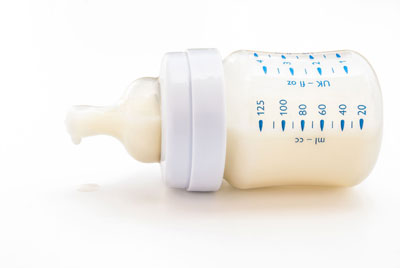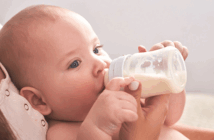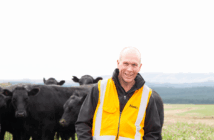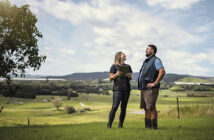By Carol Barnao
The Ministry for Primary Industries (MPI), in a joint operation with the New Zealand Customs Service, has swung into action to stop unlawful exports of New Zealand made infant formula products.
An ongoing investigation by our two agencies has revealed substantial growth in the amount of unlawfully exported infant formula in the past year, primarily to China. The unlawful trade is estimated to be valued in excess of NZ$150 million and growing.
Our clamp down has nothing to do with the safety of New Zealand-made infant formula. In fact, New Zealand enjoys a great reputation internationally as a supplier of high quality food products. This includes the infant formula we produce, which is highly regarded and sought after in our export markets.
We are taking action on the unlawful trade precisely to protect our reputation, which is based on expectations that we ensure our exporters meet the relevant international requirements for the products our trading partners import from us.
Export of dairy material – including products such as infant formula – is covered by the Animal Products Act 1999, which requires that only registered exporters can export dairy material.
Additionally, infant formula is only eligible for export to China if it has stayed with an MPI approved Risk Management Programme (RMP) holder continually from the farm up to export. If this product leaves the RMP chain at any stage, MPI cannot provide the exporter with an Export Certificate to certify the product is export eligible for the Chinese market. Without such an Export Certificate, infant formula cannot legally enter China.
If someone posts or ships infant formula from New Zealand without following these regulations for exporting dairy products then they are operating unlawfully and outside the regulated export supply chain.
It may not be obvious to everyone who has been engaged in this trade that they have been operating outside of the law, so we are taking steps to inform and educate people.
This has included sending letters to wholesalers, freight forwarders, supermarkets and known exporters that outline what the legal obligations are for every part of the export chain – from manufacture to export – and advising them that we are acting to stop unlawful export trade.
We are continuing our conversations with exporters and will give them the opportunity to either stop trading where trade is not occurring within the law or to investigate ways to export infant formula through lawful pathways.
While we expect that the majority of those involved in the infant formula trade will move to ensure they comply with the rules or stop trading if they cannot do so, MPI has powers under the Animal Products Act 1999 to prosecute people that continue to breach the rules.
The penalties for not following the rules are significant. The offence of exporting infant formula without registration has a penalty of up to $300,000 for corporations and $50,000 for individuals. There are also significant penalties for failing to comply with an RMP under the Animal Products Act 1999. Fines for doing so are up to $100,000 for corporations and $25,000 for individuals.
Information on infant formula exports to China – including a factsheet in English and Simplified Chinese on how it is legally done – is available on our website at: www.foodsafety.govt.nz/industry/exporting/introduction/infant-formula.htm
Carol Barnao is a member of the NZ FOODtechnology advisory panel and deputy directorgeneral of the Ministry for Primary Industries’ Standards branch.
Before this, she was NZFSA director of the Assurances and Standards Group which provided assurances that New Zealand food and related products are safe and suitable to eat. Carol has a strong background in the dairy industry. Before joining MAF 12 years ago, she was for 18 years involved in the dairy industry. She has held various positions with the New Zealand Dairy Board. She is a food technologist and a fellow of the New Zealand Institute of Food Science and Technology.
If you have questions for Ms Barnao or suggestions on areas of interest in her specialist area, email editor Steve Best, reference Carol Barnao.





























































































